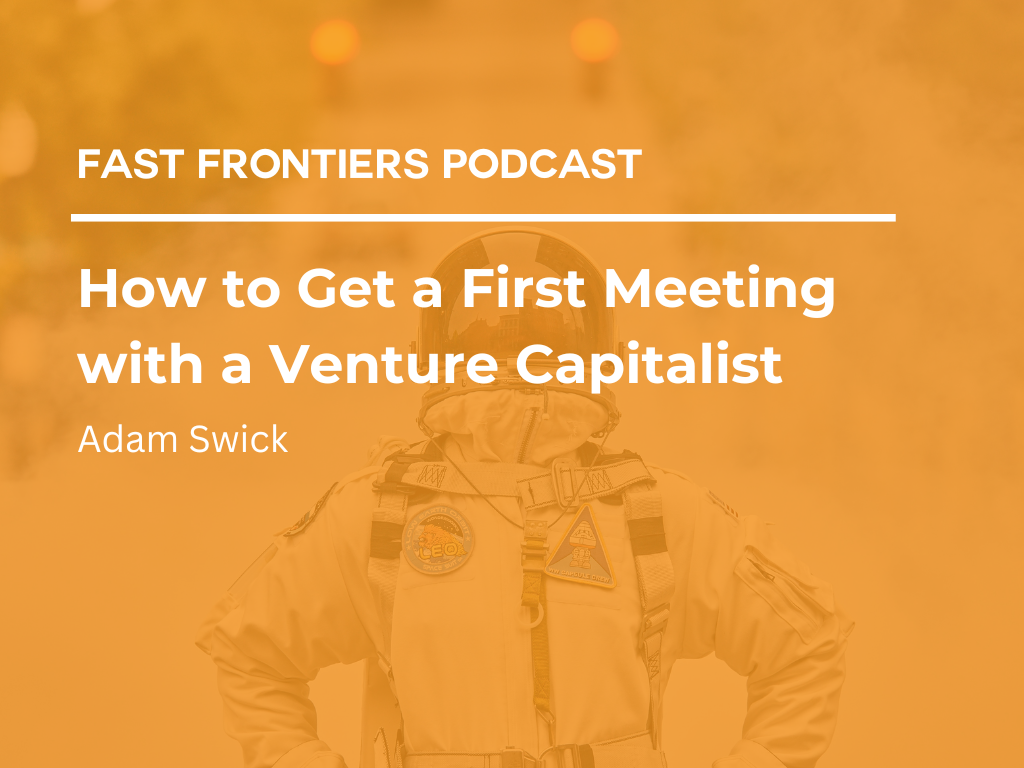Here at Refinery Ventures, we often get the question: “How am I supposed to get a first meeting with a Venture Capital investor?”
This question is especially relevant at the early stages of a startup when there is little demonstrated success or brand name to point to. As with most things in life, there is no single right answer, but a variety which all have their pros and cons.
Below is a rough ranking of our suggested methods for trying to get an introduction to a Venture Capitalist.
1. Warm introduction from another entrepreneur friendly with the VC
An introduction from an entrepreneur that the VC already knows is always the best way to be introduced. If the VC already knows and respects the entrepreneur, then they will respect an introduction coming from that entrepreneur.
VCs are evaluating hundreds of startups a month, and by being introduced via a trusted entrepreneur, you are setting yourself apart from the rest by already passing the hurdle of this entrepreneur being willing to vouch for you. This method has two main components:
One – You need to know other entrepreneurs.
Two – You have to have a business worth vouching for. Entrepreneurs are not going to recommend just anyone, as any introduction they make is tied to their reputation.
2. Warm introduction from another VC
Getting introduced by another VC is another great way to go, with some caveats.
VCs spend a lot of time speaking with other VCs about trends, deals they are seeing, etc. So, asking one VC for an introduction to another VC is very commonplace. However, you must have a rationale for requesting such an introduction.
It is poor etiquette to ask a VC for access to their entire rolodex. Instead, you need to do your research and have a targeted list of VCs you are trying to get introduced to because they are a good match for your industry, product, or the stage of your business.
Important to note, an introduction from a VC means that the first VC may not be investing in your business, which raises questions for the second VC. Why aren’t they investing? Is there a warning sign we should be aware of?
3. Meeting at an event
Meeting a VC at an event, in-person or virtual, is another great way to go. Most VCs enjoy trying to be helpful, networking, and meeting learning about new companies. However, you must walk the line between asking for money and asking for advice. You cannot go wrong with simply impressing the VC with your business and asking for advice, because if you do your job of impressing them with the business, the VC will be the one to begging to invest.
4. Cold reach-out email
Cold emails are an unfortunate necessity of the world we live in. Unfortunately, they come with the constant question of ‘Why couldn’t this startup find a warm introduction?’
It raises concerns that the founder is not well networked or involved in the startup community that they didn’t know someone that knew the VC. That said, there are times when networks do not overlap. In that case, it is important to be short and concise with your email, and why you are a great fit for that VC.
Templated emails don’t work. It is very clear to the VC that this email has been blasted to hundreds of other investors. If you must go the cold-email route, make it as personal as possible.
5. Using a banker
Unfortunately, using a banker is last on our list. There are exceptions when a banker is particularly friendly with a VC firm, in which case, this may be considered a warm introduction.
However, in most cases, the banker is just doing the cold contacting for the startup. So, we find ourselves in a bit of a cold reach-out situation. Worse is when the company is paying someone else to do the outreach for them. This raises some red flags, because if the founder cannot network and do the work to find an investor, how are they supposed to network and do the work to find customers.
Here at Refinery Ventures, we have met companies using all the above methods. We do not automatically pass on any. We have taken a first meeting with all types of the introductions listed above. A great startup is a great startup, and ultimately if you make the right connection, have a solid company, and can present well you will stand out. Hopefully this article gives you a glimpse into how we view the different ways we meet companies.



